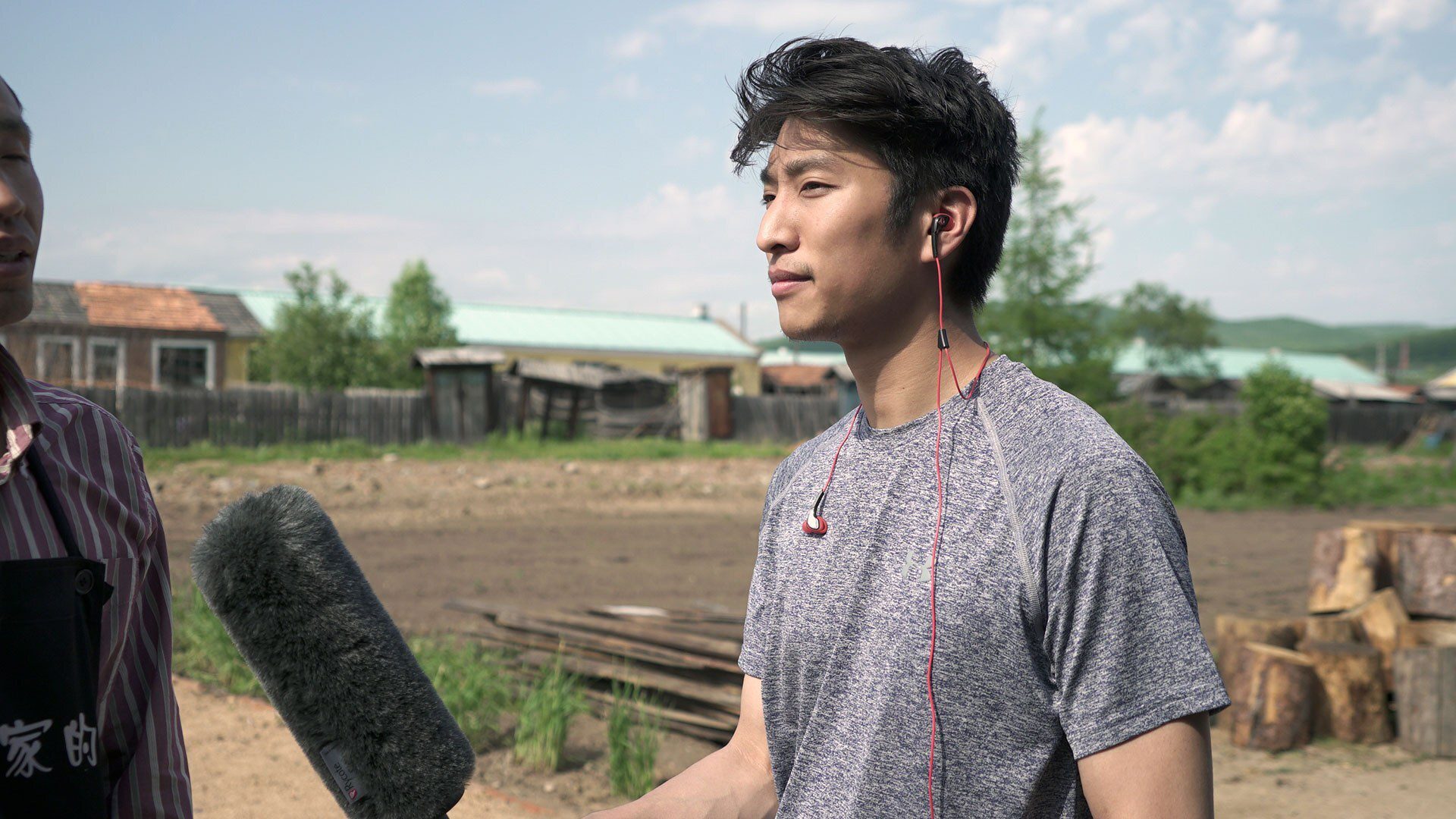- November 01, 2022
- By Karen Shih ’09
Feeling fatigued by inflation? Confused by the computer chip shortage? Perplexed by gas prices? Adrian Ma ’07 has the podcast for you: “The Indicator from Planet Money,” a 10-minute daily NPR show that decodes the economy “with a dose of nerdery, banter and storytelling.”
“When the economic news is washing over people, what questions are popping up in their heads that we can explain, so they’ll know the backstory and context?” said Ma, who was named co-host in October, alongside Darian Woods and Wailin Wong.
The show—which Ma calls the “cool punk sibling” of the longer-form “Planet Money”—isn’t limited to typical topics like interest rates or jobs numbers. Recent episodes have covered the reasons for the veterinarian shortage, the economics of sorority rush and songs that are popular during recessions.
“You can follow your curiosity,” he said. “As long as you can find an economic or business or work angle to a story, you can talk about all kinds of things, from politics to sports.”
That’s what led Ma to the business beat after a meandering start to his career. He studied finance at UMD, but served and cooked in restaurants until he entered the University of Maryland Carey School of Law in 2011. There, a media law course piqued his interest—and led to another career pivot. A year after finishing law school, he enrolled at Columbia University's Graduate School of Journalism, where he gravitated toward radio over print after too many years of reading long legal case studies.
He landed his first public radio job in 2016, working as an assistant producer at WNYC in New York. In 2017 he moved to Cleveland to work as a business reporter for WCPN, where he covered one of his favorite stories, about how Lawson’s, a string of convenience stores founded in Ohio, had disappeared from the U.S.—but ended up becoming one of Japan’s biggest chains.
Ma then moved to Boston to work at WBUR, where he reported not only on economic news like racial disparities in mortgage lending, but also the protests after George Floyd’s killing.
As a son of immigrants from Taiwan and Hong Kong, Ma brings a different perspective to his work. In the earliest days of the COVID-19 pandemic, when life continued to hum along in the United States while Wuhan was on lockdown, he noticed that Boston’s Chinatown was empty. He was the first local journalist to talk to business owners there and shed light on their struggles.
Today at NPR, Ma is part of a new wave of younger, more diverse journalists transforming the organization.
“I would love to see more kinds of people who have not traditionally been seen or heard in media doing these roles,” he said. “Not just Asian Americans, but people of all races and ethnicities and varying identities. It’s encouraging in the industry that we’re moving in that direction.”
Episodes to Try
Ma offers up a few episodes on broad economic topics to get a sense of the show, but encourages listeners to follow their own interests—and email (indicator@npr.org) or tweet @theindicator if you want to see something covered.
“As the firehose of economic stuff comes out … skim the titles and if there’s one that makes you realize, ‘I’ve been wondering about that!’ Start there,” Ma said.
- The California Effect, Sept 6, 2022, on why California’s regulations often spread beyond state borders
- The economic effects of being denied an abortion, July 6, 2022
- Mergers, acquisitions, and Elon’s rude proposal, June 13, 2022
- Home prices could fall, but is it a housing bubble? June 2, 2022
- Are you afraid of inflation?, Oct 29, 2021, a dramatized explanation of how inflation works and one of the worst historical cases of it
Topics
People